Home>Furniture & Design>Bathroom Accessories>What Is The Best Material For A Bathtub?
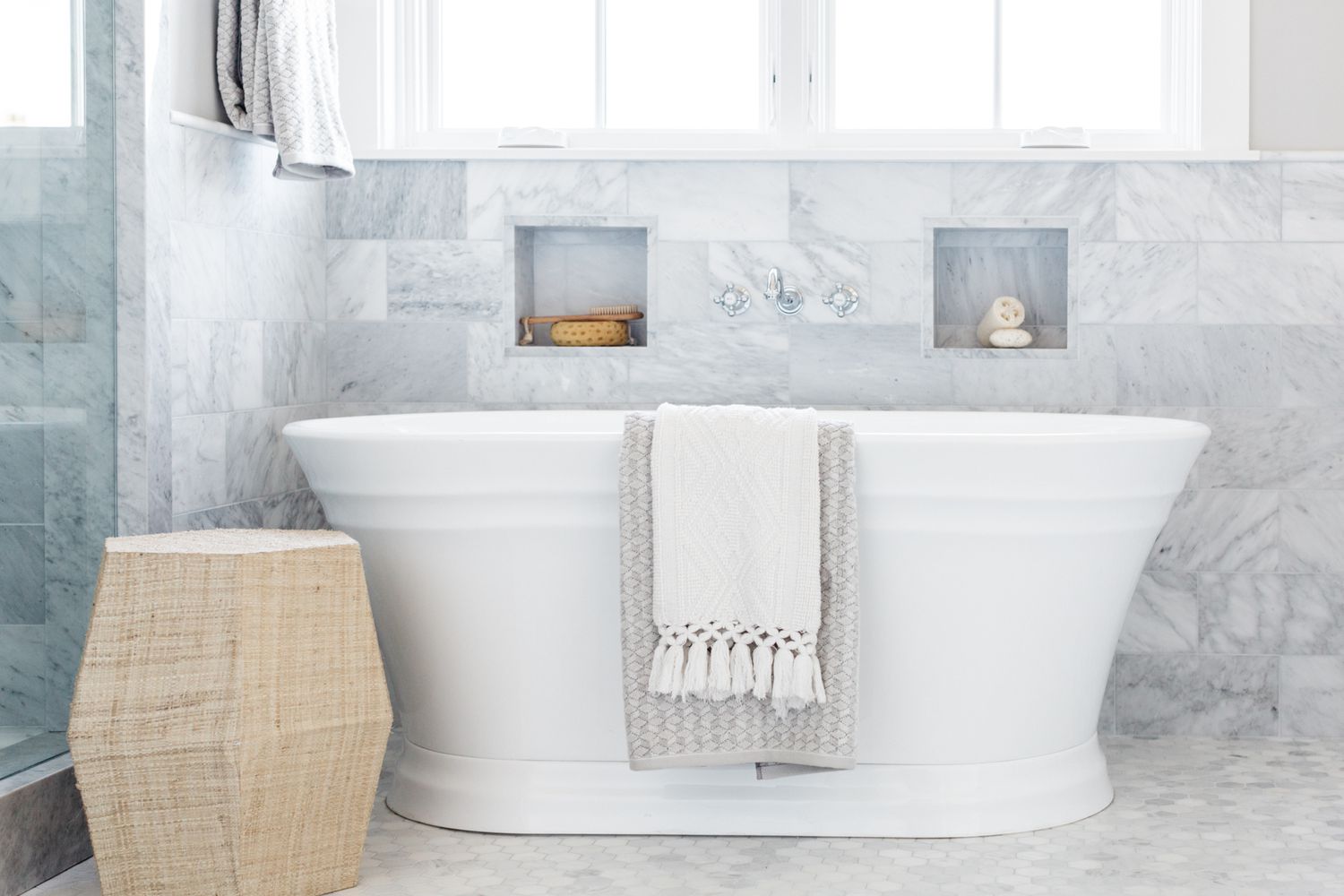

Bathroom Accessories
What Is The Best Material For A Bathtub?
Modified: April 22, 2024
Discover the best material for a bathtub and elevate your bathroom with high-quality bathroom accessories. Choose the perfect bathtub material for your needs and style.
(Many of the links in this article redirect to a specific reviewed product. Your purchase of these products through affiliate links helps to generate commission for Storables.com, at no extra cost. Learn more)
Cast Iron
Cast iron bathtubs have been a popular choice for decades, and for good reason. The durability and timeless appeal of cast iron make it a top contender when it comes to bathtub materials. Here's why cast iron bathtubs stand out:
-
Durability: Cast iron is renowned for its exceptional durability. It can withstand heavy daily use and is resistant to scratches and dents, making it an ideal choice for a long-lasting bathtub.
-
Heat Retention: One of the standout features of cast iron bathtubs is their ability to retain heat. This means that when you fill the tub with warm water, the cast iron material will keep the water warm for a longer period, allowing for a more relaxing and enjoyable bathing experience.
-
Stability: Cast iron bathtubs are known for their stability and sturdiness. Once installed, they provide a solid and secure bathing environment, giving you peace of mind while you unwind in the tub.
-
Classic Aesthetic: The timeless appeal of cast iron bathtubs adds a touch of elegance to any bathroom. Their classic look and smooth, glossy finish can complement a wide range of interior styles, from traditional to contemporary.
-
Sound Insulation: Cast iron's density provides natural sound insulation, reducing the noise of running water and creating a quieter bathing experience.
-
Customization: Cast iron bathtubs often come with a range of customization options, including various shapes, sizes, and finishes, allowing you to select a bathtub that fits your specific preferences and bathroom layout.
In summary, cast iron bathtubs offer exceptional durability, heat retention, stability, classic aesthetic, sound insulation, and customization options, making them a top choice for homeowners seeking a long-lasting and visually appealing bathtub solution.
Key Takeaways:
- Cast iron bathtubs offer exceptional durability, heat retention, stability, classic aesthetic, sound insulation, and customization options, making them a top choice for a long-lasting and visually appealing bathtub solution.
- Acrylic bathtubs provide versatility, lightweight construction, excellent warmth retention, ease of maintenance, affordability, and ample customization options, making them a practical and visually appealing choice for a relaxing bathing experience.
Read more: What Are The Best Roof Shingles
Acrylic
Acrylic bathtubs have gained widespread popularity in the modern era, offering a compelling combination of versatility, affordability, and aesthetic appeal. Here's why acrylic bathtubs stand out:
-
Versatility: Acrylic is a highly versatile material, allowing for the creation of a wide array of bathtub shapes, sizes, and designs. Whether you prefer a classic, freestanding tub or a sleek, modern alcove bathtub, acrylic can be molded and shaped to suit various preferences and bathroom layouts.
-
Lightweight: Compared to traditional materials like cast iron, acrylic is significantly lighter, making it easier to handle and install. This characteristic is particularly advantageous when renovating or remodeling a bathroom, as it simplifies the transportation and placement of the bathtub.
-
Warmth Retention: Acrylic bathtubs boast excellent heat retention properties, ensuring that the water stays warm for a prolonged period. This feature enhances the bathing experience, allowing individuals to indulge in a relaxing soak without the water cooling too quickly.
-
Ease of Maintenance: Acrylic surfaces are non-porous, making them resistant to stains and easy to clean. Regular maintenance typically involves simple wiping with a mild, non-abrasive cleanser, ensuring that the bathtub maintains its luster and cleanliness over time.
-
Affordability: Acrylic bathtubs are often more budget-friendly compared to other materials, making them an attractive option for homeowners seeking a balance between quality and cost-effectiveness. The affordability of acrylic allows individuals to invest in other aspects of their bathroom design or allocate resources to complementary fixtures and accessories.
-
Customization: Acrylic bathtubs are available in a wide range of colors and finishes, providing ample opportunities for customization to align with specific aesthetic preferences and design schemes. This flexibility enables homeowners to personalize their bathrooms and create a cohesive, harmonious space.
In summary, acrylic bathtubs offer versatility, lightweight construction, excellent warmth retention, ease of maintenance, affordability, and ample customization options, making them a compelling choice for individuals seeking a practical and visually appealing bathtub solution.
Fiberglass
Fiberglass bathtubs have emerged as a popular choice for homeowners seeking a versatile, lightweight, and cost-effective bathing solution. This material offers several compelling advantages that make it a standout option in the realm of bathroom accessories.
Advantages of Fiberglass Bathtubs
Lightweight Construction
One of the primary benefits of fiberglass bathtubs is their lightweight nature. Unlike heavier materials such as cast iron, fiberglass is notably lighter, making it easier to transport, maneuver, and install. This characteristic is particularly advantageous during bathroom renovations or new construction, as it simplifies the handling and placement of the bathtub, reducing the logistical challenges often associated with heavier alternatives.
Versatility in Design
Fiberglass's malleable nature allows for a diverse range of bathtub designs and styles. Whether you prefer a classic, built-in tub or a contemporary, freestanding model, fiberglass can be molded and shaped to accommodate various aesthetic preferences and spatial requirements. This versatility enables homeowners to select a bathtub that seamlessly integrates with their overall bathroom design, contributing to a cohesive and visually appealing space.
Affordability
Fiberglass bathtubs are known for their cost-effectiveness, offering a budget-friendly option for individuals seeking a balance between quality and affordability. The relatively lower production costs associated with fiberglass contribute to its competitive pricing, making it an attractive choice for those looking to enhance their bathrooms without exceeding their budget constraints. This affordability allows homeowners to allocate resources to other aspects of their bathroom design or invest in complementary fixtures and accessories.
Easy Maintenance
Maintaining a fiberglass bathtub is relatively straightforward, thanks to its non-porous surface. This characteristic makes fiberglass resistant to stains and easy to clean, requiring minimal effort to preserve its appearance and functionality. Regular cleaning typically involves using a mild, non-abrasive cleanser, ensuring that the bathtub retains its luster and cleanliness over time. The ease of maintenance associated with fiberglass contributes to a hassle-free bathing experience, allowing individuals to focus on relaxation and rejuvenation.
Heat Retention
Fiberglass bathtubs offer commendable heat retention properties, ensuring that the water maintains its warmth for an extended period. This feature enhances the bathing experience, allowing individuals to indulge in a soothing soak without the water cooling too quickly. The ability of fiberglass to retain heat contributes to a more enjoyable and relaxing bathing experience, adding to the overall appeal of this material.
In summary, fiberglass bathtubs offer a compelling combination of lightweight construction, design versatility, affordability, easy maintenance, and commendable heat retention properties. These advantages position fiberglass as a practical and appealing choice for homeowners seeking a reliable and cost-effective bathtub solution.
Porcelain-enameled steel
Porcelain-enameled steel bathtubs offer a unique blend of durability, affordability, and aesthetic appeal, making them a compelling choice for homeowners seeking a practical and visually pleasing bathing solution. This material, which consists of a steel base coated with a layer of porcelain enamel, boasts several distinct advantages that set it apart in the realm of bathroom accessories.
Read more: What Cleans A Bathtub The Best?
Advantages of Porcelain-Enameled Steel Bathtubs
Durability and Strength
Porcelain-enameled steel bathtubs are renowned for their exceptional durability and strength. The steel base provides a sturdy foundation, capable of withstanding the rigors of daily use and maintaining its structural integrity over time. The porcelain enamel coating further enhances the bathtub's resilience, offering resistance to scratches, chips, and stains. This robust construction ensures that the bathtub retains its aesthetic appeal and functionality, even after prolonged usage, making it a reliable and long-lasting addition to any bathroom.
Heat Retention
One of the standout features of porcelain-enameled steel bathtubs is their commendable heat retention properties. When filled with warm water, the steel material effectively retains the heat, allowing for an extended period of enjoyable soaking. This characteristic contributes to a relaxing bathing experience, as individuals can luxuriate in the warmth of the water without it cooling too quickly. The ability of porcelain-enameled steel bathtubs to maintain heat adds to their overall appeal, enhancing the comfort and satisfaction of the bathing ritual.
Affordability
Porcelain-enameled steel bathtubs are known for their affordability, offering a cost-effective option for individuals seeking a durable and visually appealing bathing solution. The combination of steel and porcelain enamel results in a bathtub that is competitively priced, making it an attractive choice for homeowners looking to enhance their bathrooms without exceeding their budget constraints. This affordability allows individuals to invest in other aspects of their bathroom design or allocate resources to complementary fixtures and accessories, creating a well-appointed and inviting space.
Easy Maintenance
Maintaining a porcelain-enameled steel bathtub is relatively straightforward, thanks to the non-porous nature of the porcelain enamel coating. This characteristic makes the surface resistant to stains and easy to clean, requiring minimal effort to preserve its luster and cleanliness. Regular cleaning typically involves using a mild, non-abrasive cleanser, ensuring that the bathtub maintains its original sheen and remains free from blemishes. The ease of maintenance associated with porcelain-enameled steel contributes to a hassle-free bathing experience, allowing individuals to focus on relaxation and rejuvenation.
In summary, porcelain-enameled steel bathtubs offer a compelling combination of durability, heat retention, affordability, and easy maintenance. These advantages position porcelain-enameled steel as a practical and visually appealing choice for homeowners seeking a reliable and cost-effective bathtub solution.
Stone Resin
Stone resin bathtubs represent a luxurious and sophisticated bathing option that seamlessly combines the natural beauty of stone with the versatility of resin. This exquisite material offers a range of compelling advantages, making it a standout choice for discerning homeowners seeking a distinctive and visually striking bathtub solution.
Advantages of Stone Resin Bathtubs
Aesthetic Elegance
Stone resin bathtubs exude an unparalleled aesthetic elegance, showcasing the timeless allure of natural stone while incorporating the flexibility and creativity afforded by resin. The resulting bathtub designs often feature smooth, sculptural forms and captivating textures, creating a visually captivating centerpiece for any bathroom. The inherent beauty of stone resin lends a sense of opulence and refinement to the bathing space, elevating the overall ambiance and contributing to a luxurious bathing experience.
Durability and Strength
One of the most notable advantages of stone resin bathtubs is their exceptional durability and strength. The combination of natural stone particles and high-quality resin results in a robust and resilient material that can withstand the demands of daily use. This durability ensures that the bathtub maintains its structural integrity and aesthetic appeal over time, offering a long-lasting and reliable bathing solution for homeowners.
Heat Retention
Stone resin bathtubs excel in heat retention, allowing for an indulgent and prolonged bathing experience. When filled with warm water, the material effectively retains the heat, enveloping bathers in soothing warmth for an extended period. This feature enhances the relaxation and rejuvenation aspects of bathing, providing a luxurious and comforting experience that promotes overall well-being.
Customization Options
Stone resin bathtubs offer ample opportunities for customization, allowing homeowners to tailor the bathtub to their specific preferences and spatial requirements. The material's malleability enables the creation of a diverse range of shapes, sizes, and designs, accommodating various aesthetic and functional considerations. Whether seeking a sleek, modern freestanding tub or a classic, built-in model, stone resin can be crafted to align with individual design visions, contributing to a personalized and harmonious bathroom environment.
Easy Maintenance
Maintaining a stone resin bathtub is relatively straightforward, thanks to its non-porous and smooth surface. This characteristic makes the material resistant to stains and easy to clean, requiring minimal effort to preserve its luster and cleanliness. Regular cleaning typically involves using a mild, non-abrasive cleanser, ensuring that the bathtub remains pristine and visually appealing. The ease of maintenance associated with stone resin contributes to a hassle-free bathing experience, allowing individuals to focus on relaxation and enjoyment.
In summary, stone resin bathtubs offer a compelling combination of aesthetic elegance, durability, heat retention, customization options, and easy maintenance. These advantages position stone resin as a premier choice for homeowners seeking a luxurious, visually striking, and enduring bathtub solution.
Copper
Copper bathtubs are revered for their exquisite beauty and exceptional functional properties, making them a captivating choice for homeowners seeking a luxurious and distinctive bathing experience. The allure of copper transcends mere aesthetics, as this material offers a range of compelling advantages that set it apart in the realm of bathroom accessories.
Read more: What Is The Best Material For A Flat Roof
Aesthetic Elegance
Copper bathtubs exude an unparalleled aesthetic elegance, showcasing the rich, warm tones of the metal and its ability to develop a unique patina over time. The natural luster and captivating hues of copper create a visually striking centerpiece for any bathroom, infusing the space with a sense of opulence and sophistication. The inherent beauty of copper lends a timeless charm to the bathing environment, elevating the overall ambiance and contributing to a luxurious bathing experience.
Exceptional Durability
One of the most notable advantages of copper bathtubs is their exceptional durability and longevity. Copper is inherently resistant to corrosion, making it a material that can withstand the test of time. This robust construction ensures that the bathtub maintains its structural integrity and aesthetic appeal over the years, offering a long-lasting and reliable bathing solution for homeowners. The durability of copper also contributes to its sustainability, as it can be passed down through generations, becoming a cherished heirloom within a family.
Heat Retention
Copper bathtubs excel in heat retention, allowing for an indulgent and prolonged bathing experience. When filled with warm water, the material effectively retains the heat, enveloping bathers in soothing warmth for an extended period. This feature enhances the relaxation and rejuvenation aspects of bathing, providing a luxurious and comforting experience that promotes overall well-being. The ability of copper to maintain heat adds to its overall appeal, creating an environment conducive to unwinding and indulging in a tranquil soak.
Antimicrobial Properties
Copper possesses natural antimicrobial properties, effectively inhibiting the growth of bacteria, viruses, and fungi. This inherent characteristic makes copper bathtubs a hygienic and health-conscious choice for individuals seeking a clean and safe bathing environment. The antimicrobial properties of copper contribute to a healthier bathroom space, providing peace of mind and promoting overall well-being for the occupants.
Read more: What Brand Of Bathtub Is Best?
Customization Options
Copper bathtubs offer ample opportunities for customization, allowing homeowners to tailor the bathtub to their specific preferences and spatial requirements. The material's malleability enables the creation of a diverse range of shapes, sizes, and designs, accommodating various aesthetic and functional considerations. Whether seeking a sleek, modern freestanding tub or a classic, built-in model, copper can be crafted to align with individual design visions, contributing to a personalized and harmonious bathroom environment.
In summary, copper bathtubs offer a compelling combination of aesthetic elegance, exceptional durability, heat retention, antimicrobial properties, and customization options. These advantages position copper as a premier choice for homeowners seeking a luxurious, visually striking, and enduring bathtub solution.
Frequently Asked Questions about What Is The Best Material For A Bathtub?
Was this page helpful?
At Storables.com, we guarantee accurate and reliable information. Our content, validated by Expert Board Contributors, is crafted following stringent Editorial Policies. We're committed to providing you with well-researched, expert-backed insights for all your informational needs.

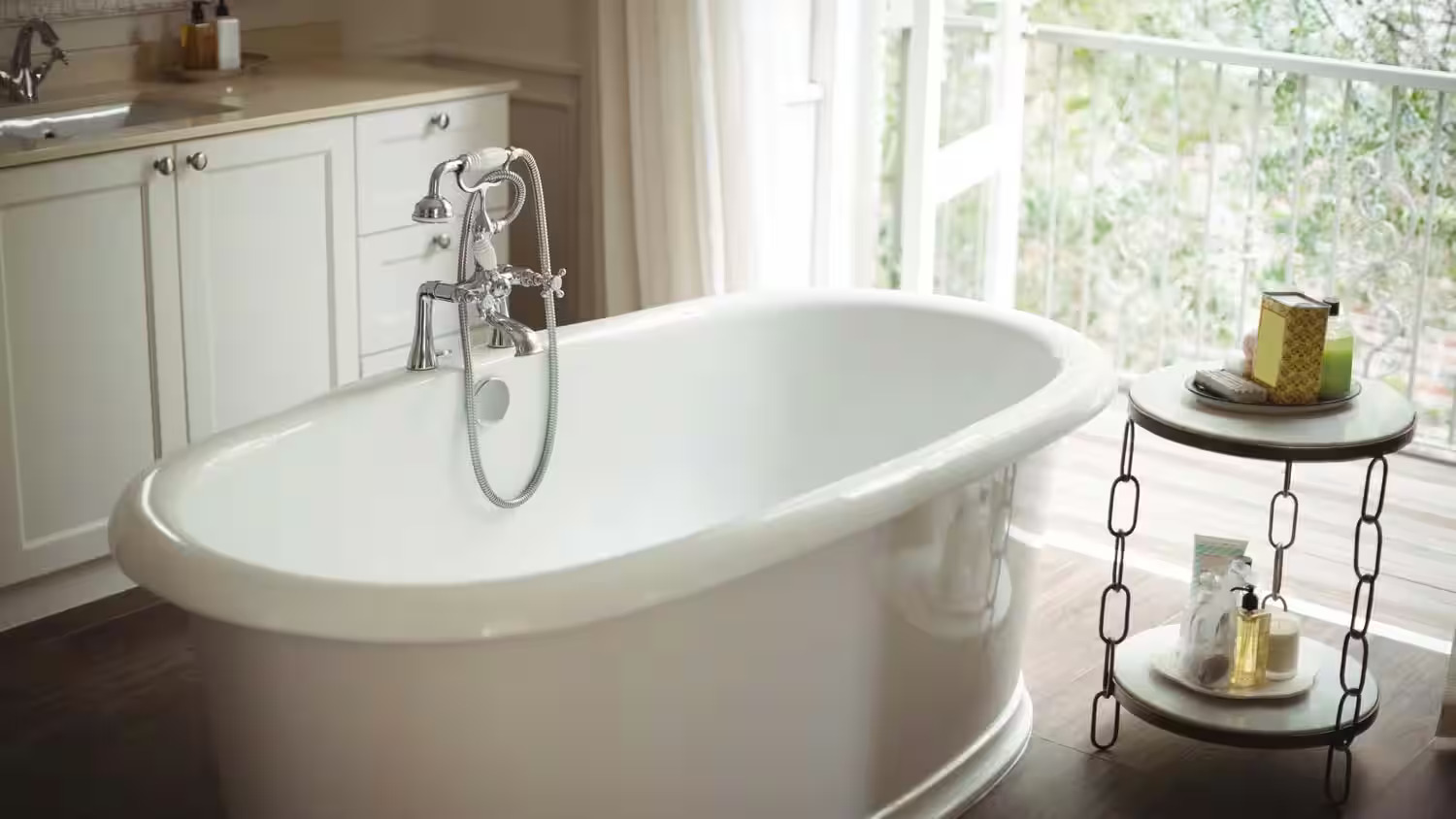
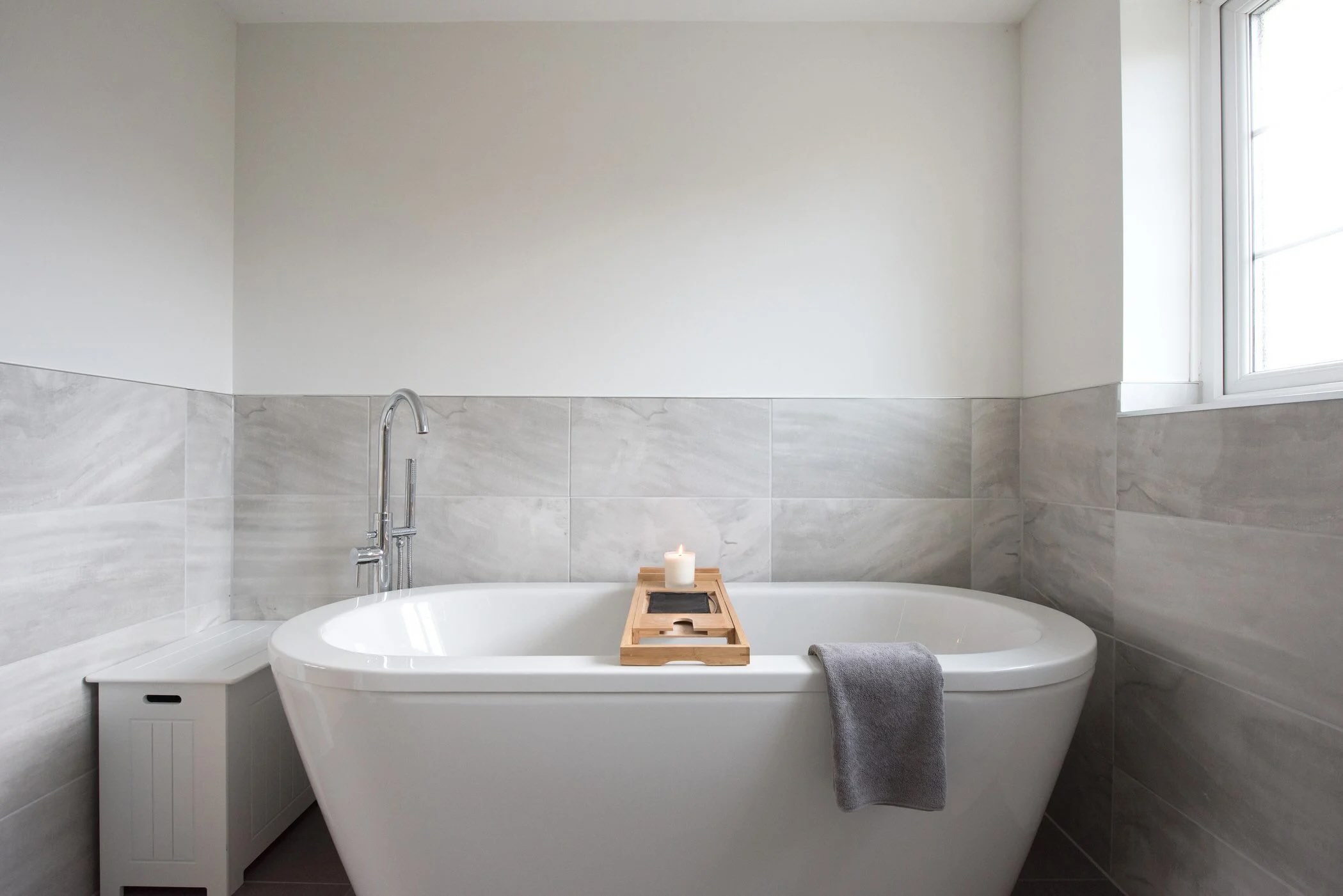
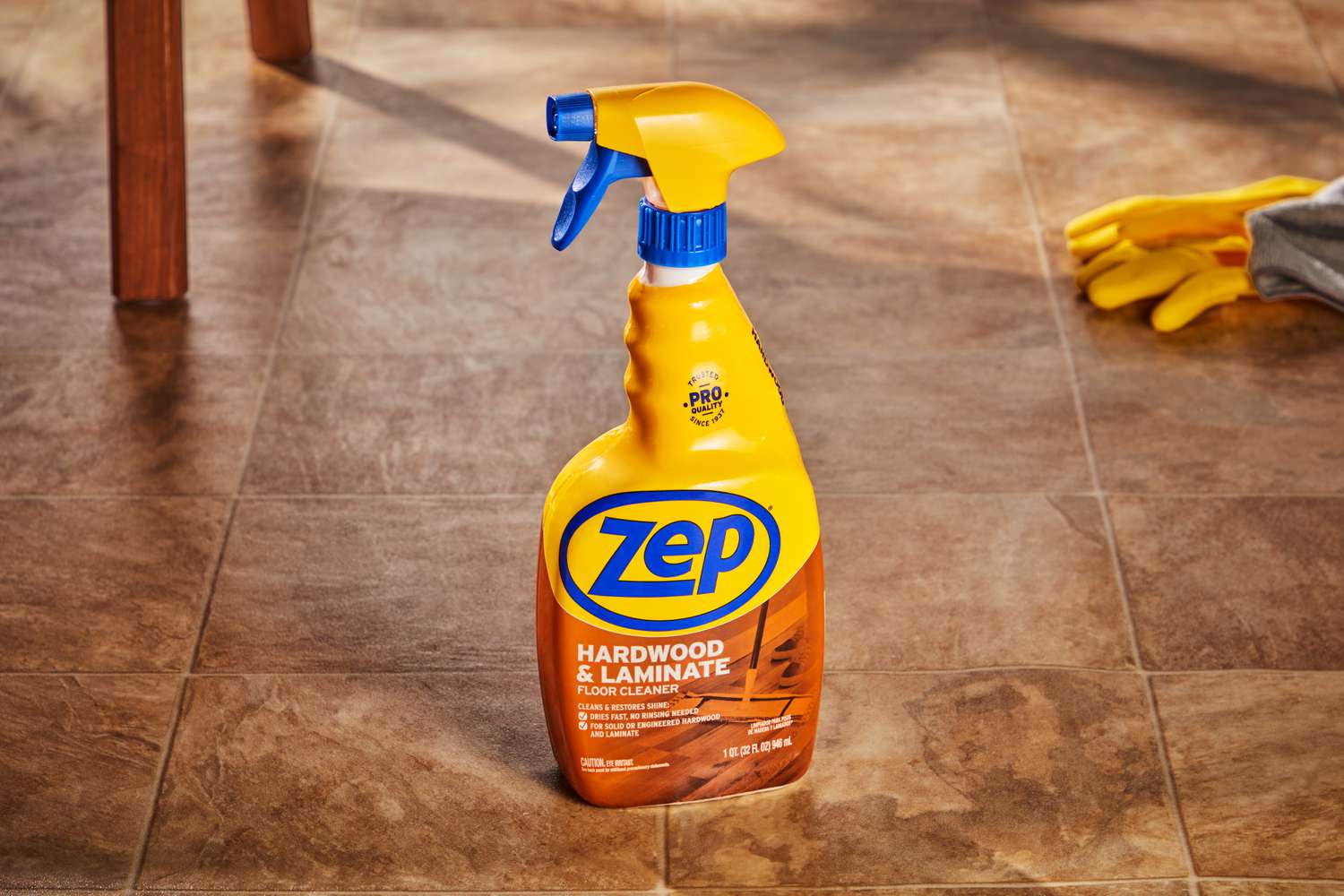
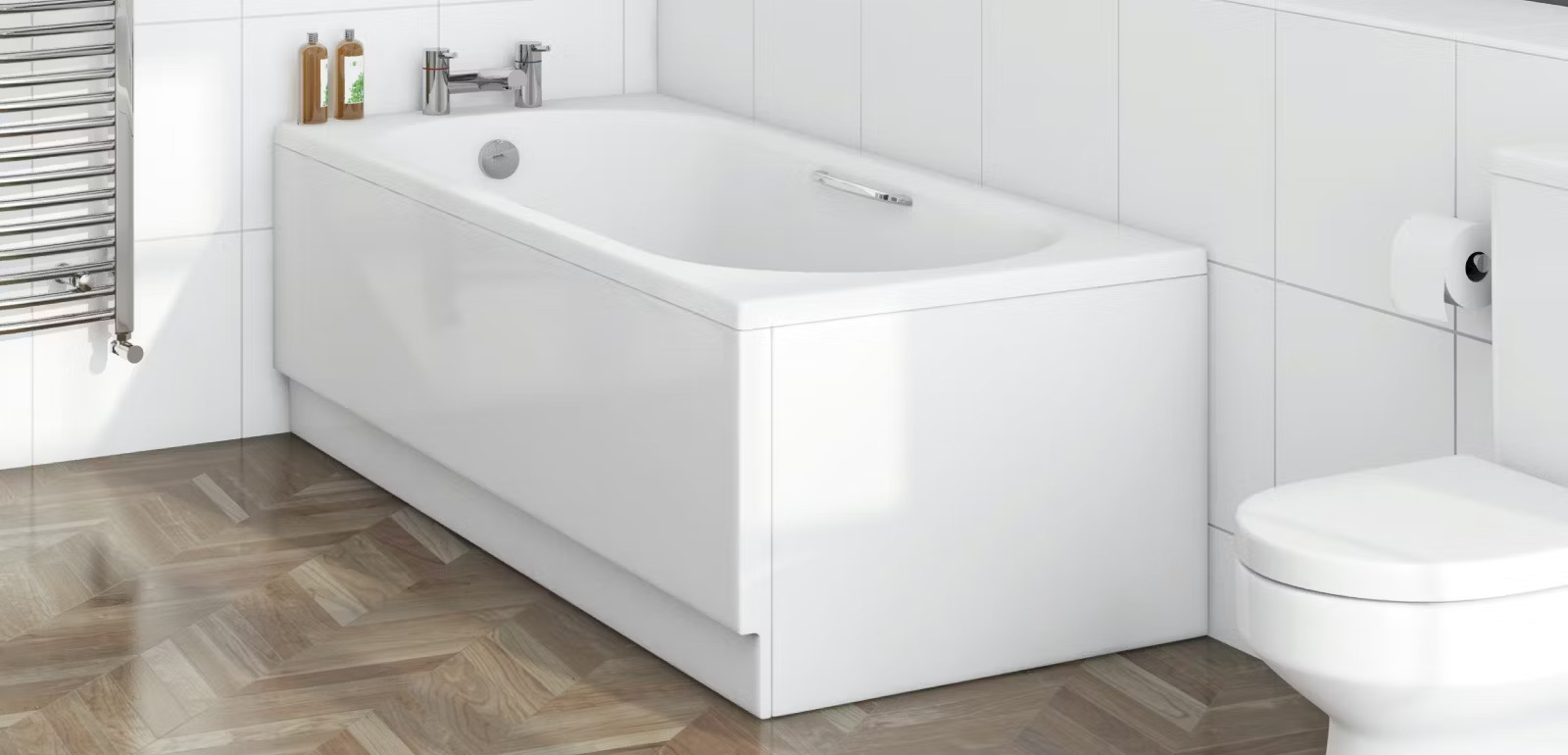
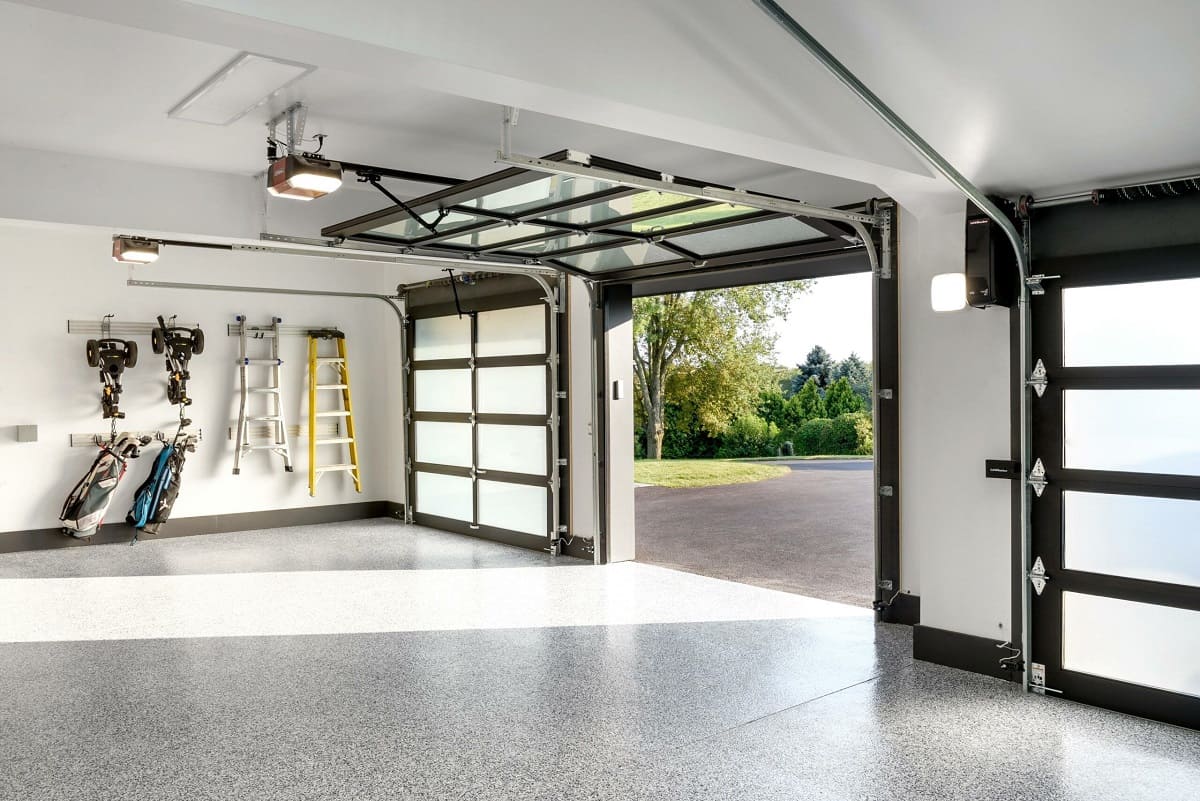
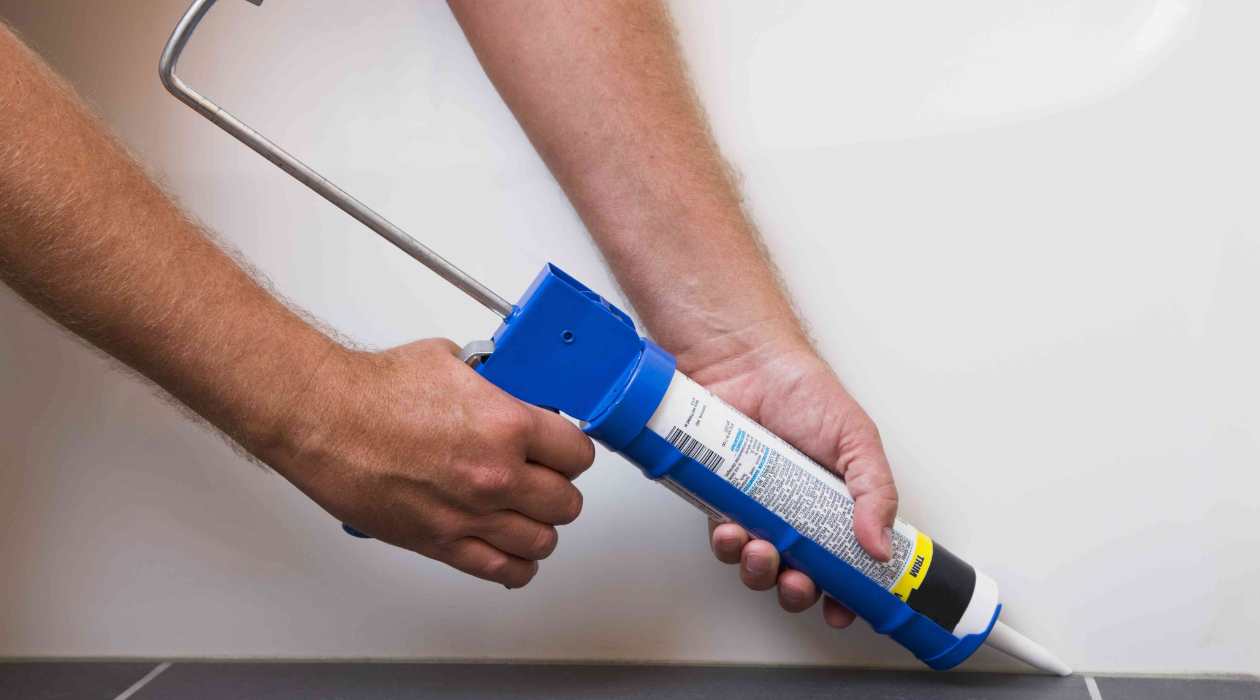
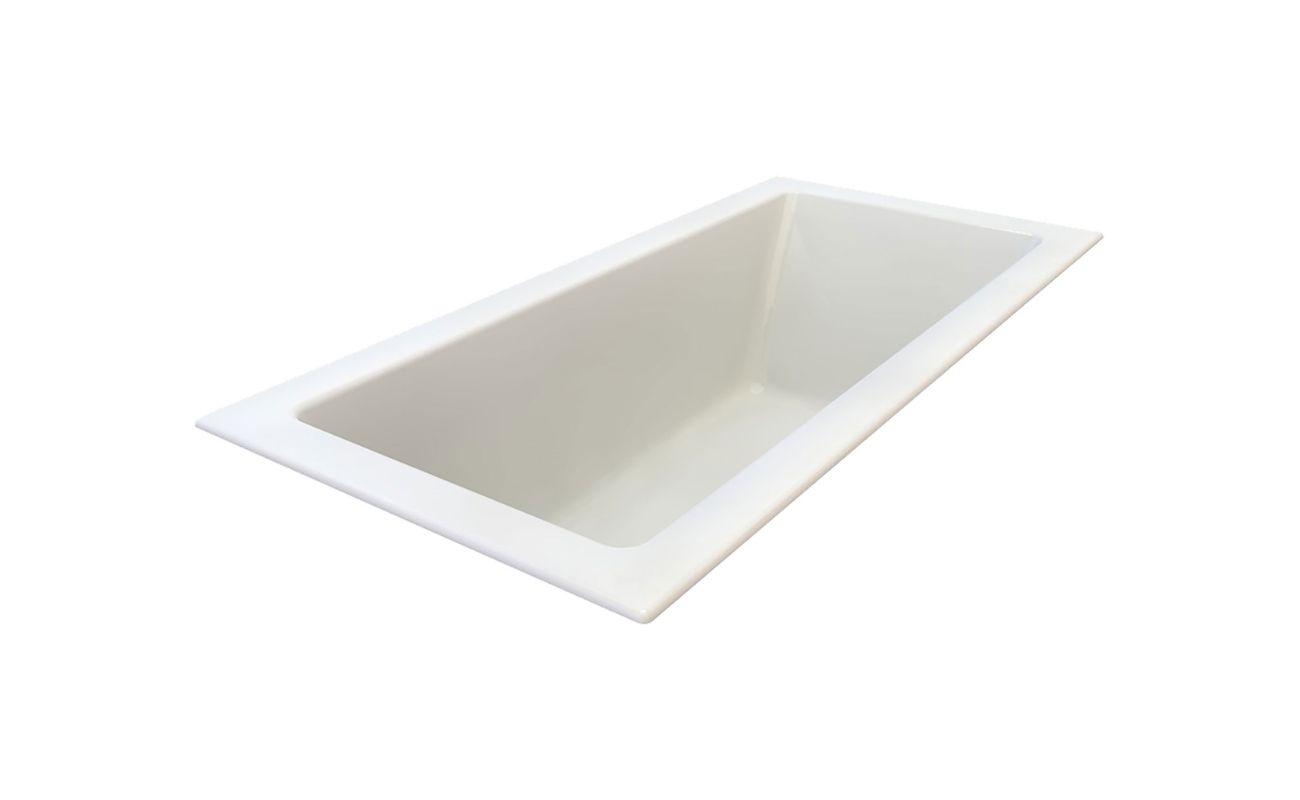
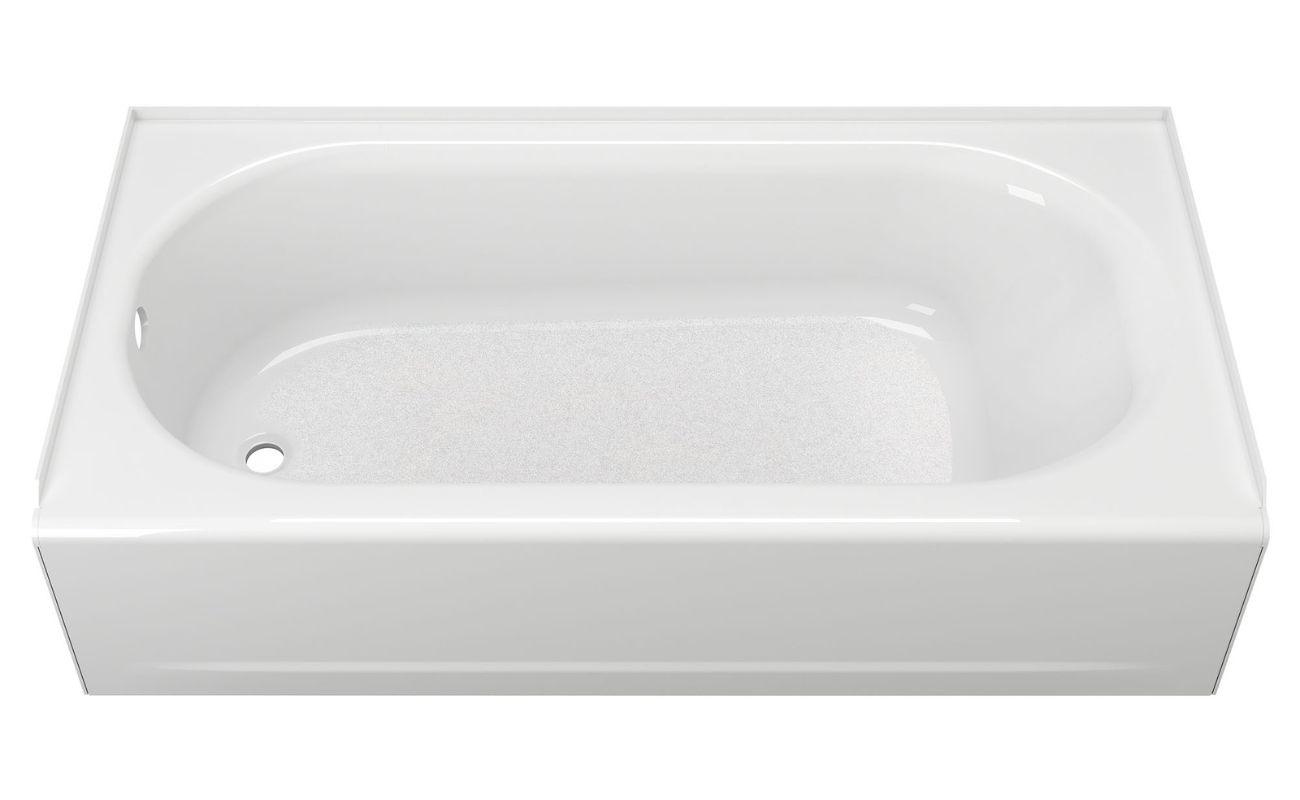
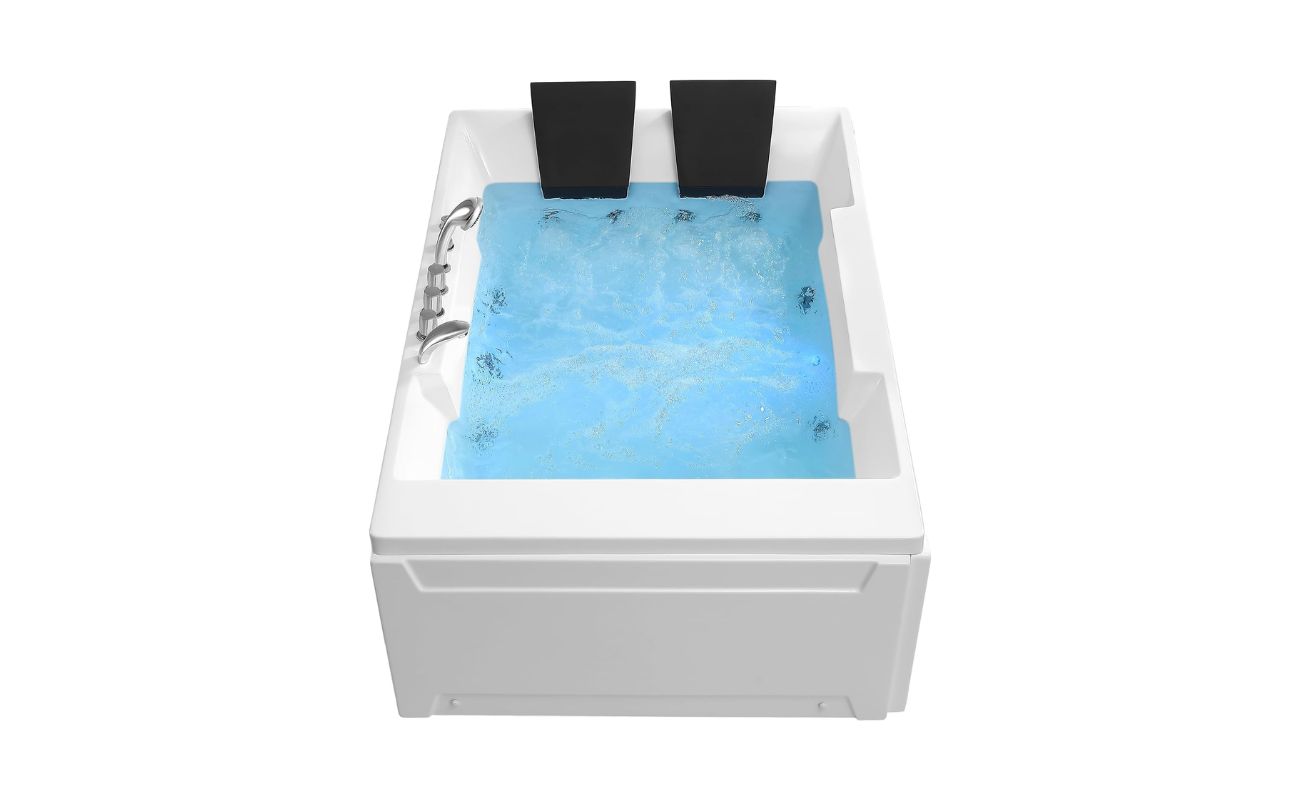

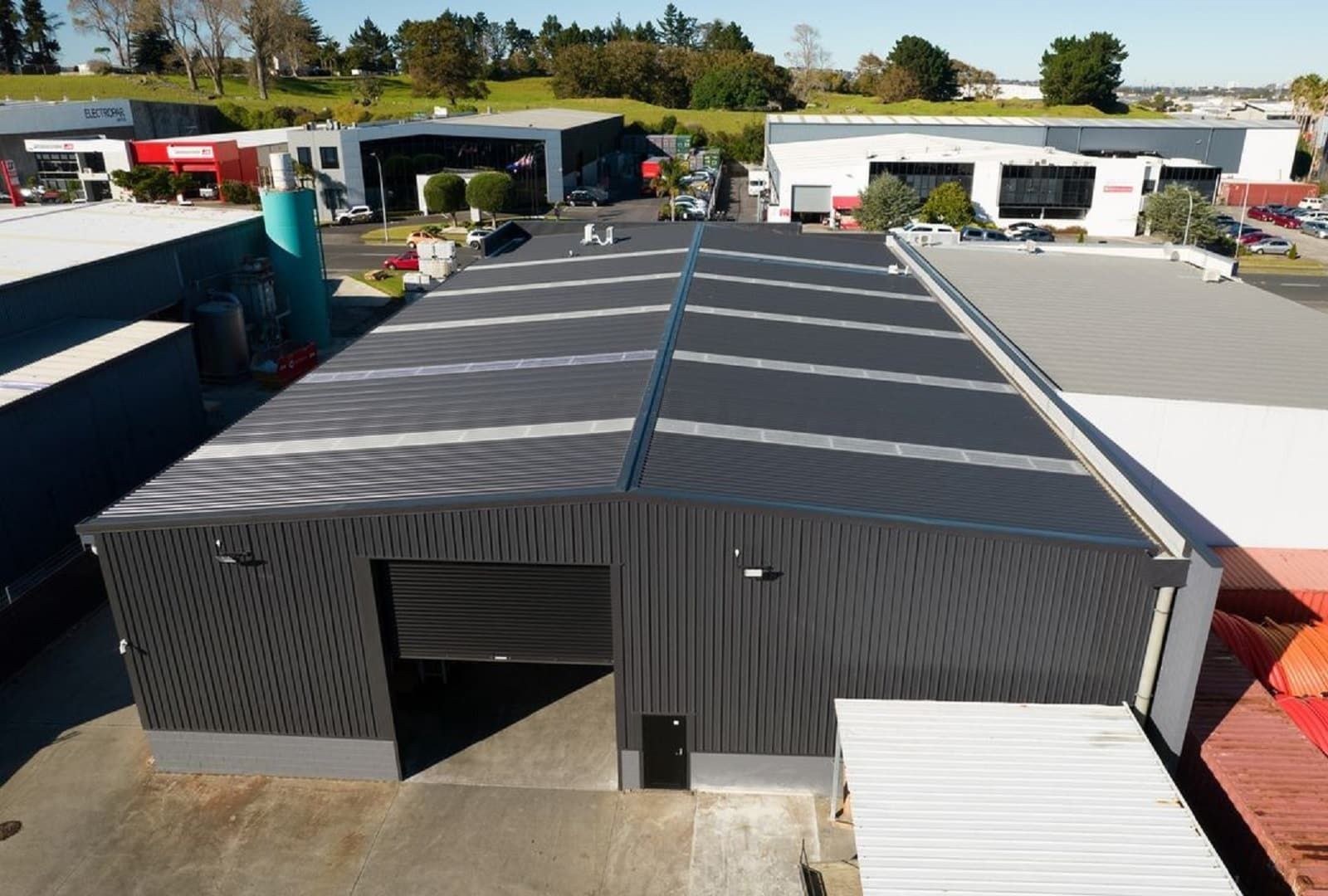

0 thoughts on “What Is The Best Material For A Bathtub?”